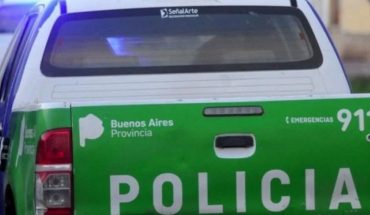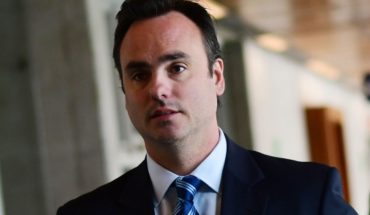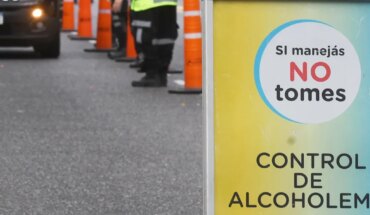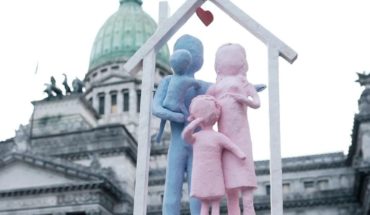CARACAS (AP) — After several mismatches, Venezuela’s opposition managed earlier this year to rise from its lethargy and form a powerful leadership, propped up by more than fifty countries, which cornered President Nicolás Maduro at the start of his second-year. Today that panorama looks diametrically opposed and its leader, Juan Guaidó, struggles to preserve the reins of the bloc between corruption scandals in the National Assembly, divisions and questions of Venezuelans who withdrew from the streets disappointed that they did not will achieve long-standing political change. In contrast, Maduro appears to end the year entrenched in government with the support of senior military command.
Faced with the opposition scenario, few are confident that it will soon be able to overcome the crisis to regain strength and reconnect with nearly 80% of Venezuelans who want political change, the top local polls say, and defeat the Officialism in the parliamentary elections looming for 2020.One of the obstacles that analysts say the opposition must overcome is the loss of confidence and discouragement that are among those who are frustrated at failing to remove Maduro from power. An opinion study that culminated last month local pollster Delphos among 1,200 people, with a margin of error of 2.2%, shows that 41.5% of the population is disappointed and disappointed. Among those who assume disregard edel Romero, a 42-year-old paramedic and fisherman, who three months ago chose to leave the eastern village of Marigueitar, where he lived for almost three decades with his wife and six children, and moved alone to the capital , where he found a job as a caddie that generates about ten dollars a week and allows him to send food to his family.” I thought Guaidó was going to give the battle and bring about a change of government to make things better, but it didn’t happen,” said Romero, who works at an exclusive Caracas.La of the talk that has been extinguishing anti-government protests seemed no. to amise Guaidó, the 36-year-old engineer who leads the National Assembly and claimed that this situation should not be assumed as a defeat. “There is no resignation here. There is frustration because we have not already emerged from the conflict naturally because no one wants to live without water, no one wants to live without domestic gas, no one wants to live with their relatives far away,” he said in an interview with The Associated Press, and said he is confident that the frustration “is going to become a force to overcome this tragedy.” The leader, recognized as interim president of Venezuela by half a hundred countries, did not specify how he hopes to lift his spirits and only indicated that by 2020 he has “45 times as many chances” to defeat the leftist representative, alluding to a recent Delphos poll that gives you 45% popular support, an indicator that is about twenty percentage points below the support you had in May. Nevertheless, he remains the political figure with the most popular support beating Maduro, whose support is around 12%. Within its ranks, Guaidó also faces divisions, new court processes and detention measures against six congressmen and accusations of alleged corruption that have splattered nine pointed deputies to favor government-linked businessmen. The situation is tense because on January 5, we will vote in the National Assembly to re-elect Guaidó as leader of the legislature. In an attempt to shield the leader’s votes and stop what the opposition identified as a government plan to “dismantle” Congress by holding lawsuits against thirty deputies, the opposition majority of the Assembly approved this week a reform to a regulation that allows congressmen to participate virtually in the sessions with the support of technological means, a decision that might not succeed if the Supreme Court of Justice, which controls the government, overturns it. While the 2020 parliamentary election is a crucial issue because the opposition is playing the loss of the National Assembly, its last political stronghold, no consensus has been reached on the actions that will follow in the face of the divergences between those in favour and those who don’t want to participate. One of the voices that rejects the election is the leader María Corina Machado, president of the minority organization Vente Venezuela, who told the PA that participating would involve “legitimizing the regime.” As long as the monopoly on arms, the media, justice and money is in the hands of the mafias, do you think there’s going to be a competitive choice here that will bring about political change that’s going to judge those mobs?” he added. Machado argues that the dismantling of Maduro’s government will only be possible if it is confronted with “a real threat, an imminent threat, a severe threat underpinned by internal and external forces.” For his part, Guaidó stated that alternatives are still being evaluated to define a stance in the face of possible parliamentary elections, but told the PA that “without conditions we were not on May 20, 2018 (the presidential election in which Maduro achieved the re-election), without conditions we will not go to any kind of election.” In this regard, the academic Benigno Alarcón, director of the Center for Political Studies and Government of the Catholic University Andrés Bello (UCAB), said that the participation of the opposition in a vote “depends more on political conditions than electoral ones”, but He recalled that boycotts that have promoted opposition in the past “have never shown capitalifiable results in the long run.” Alarcón proposed during a recent forum organized by the UCAB that the effects of election boycotts be “rapidly diluted while considerably increasing the asymmetry between the government and opposition by reducing their institutional presence, leaving them only the field of protest.” As the opposition tries to recover from their crisis, the rest of Venezuelans have no choice but to continue to face their own. Romero, who currently works as a caddie, admitted that he prefers to concentrate his work to raise money and send food to his wife and children, but argues that he does not lose hope of political change in Venezuela. “Of that there will be a change, there will be a change. The problem is we don’t know when,” he concluded.





